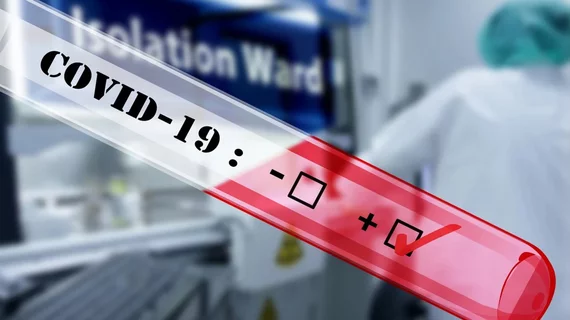Blood thinners improve outcomes for hospitalized COVID-19 patients
Providing hospitalized COVID-19 patients with anticoagulants is associated with improved outcomes, according to new findings published in the Journal of the American College of Cardiology. Is it time to start routinely treating COVID-19 patients with these medications?
The study’s authors explored data from 2,773 patients treated at one of five New York hospitals from March 14 to April 11, 2020. All patients had confirmed cases of COVID-19. Twenty-eight percent of patients received a full dose of anticoagulants, meaning more than would typically be given for basic blood clot prevention.
Patients treated with anticoagulants had an in-hospital mortality of 22.5% and median survival of 21 days. Patients who did not receive the anticoagulants, on the other hand, had an in-hospital mortality of 22.8% and median survival of 14 days. Looking specifically at patients who required mechanical ventilation, in-hospital mortality was 29.1% for those treated with anticoagulants and 62.7% for those who did not receive anticoagulants.
The researchers note that these findings are promising—but more research is required before routine anticoagulant treatment for all COVID-19 patients can be recommended.
“This research demonstrates anticoagulants taken orally, subcutaneously, or intravenously may play a major role in caring for COVID-19 patients, and these may prevent possible deadly events associated with coronavirus, including heart attack, stroke, and pulmonary embolism,” senior corresponding author Valentin Fuster, MD, PhD, director of Mount Sinai Heart in New York City and editor-in-chief of the JACC, said in a prepared statement. “Using anticoagulants should be considered when patients get admitted to the ER and have tested positive for COVID-19 to possibly improve outcomes. However, each case should be evaluated an individualized basis to account for potential bleeding risk.”
“As a cardiologist who has been on service caring for COVID-19 patients for the last three weeks, I have observed an increased amount of blood clot cases among hospitalized patients, so it is critical to look at whether anticoagulants provide benefits for them,” co-author Anu Lala, MD, assistant professor of medicine at the Icahn School of Medicine at Mount Sinai, said in the same statement. “It's important to note that further analysis and prospective studies are required to determine the effectiveness for widespread use of anticoagulants in hospitalized COVID-19 patients.”

